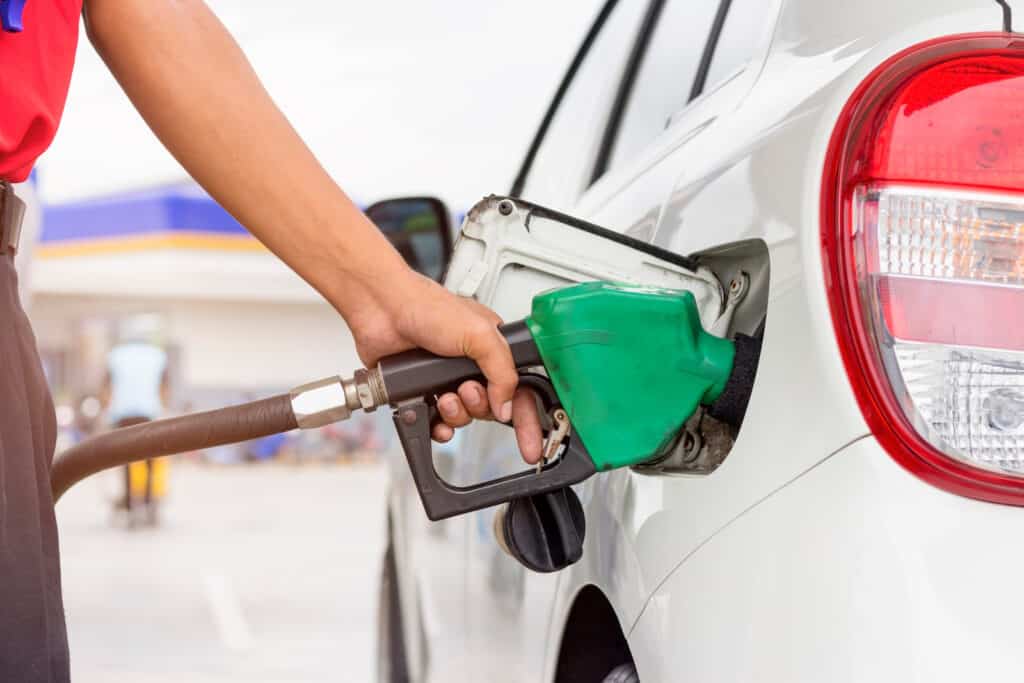AUTONEWS

Germany bets on hydrogen and synthetic fuels
The European Parliament recently voted yes to banning the sale of new vehicles with combustion engines in the EU from 2035, which the European Commission had already proposed in 2021.
Thus, in just 12 years (and except for the few saved by the so-called “Ferrari Amendment”), hybrid or e-fuel powered cars will not even be sold in our market. But not all countries agree and not everything has been said.
This measure has detractors like the Czech Republic, France or Germany, who are now insisting on asking the Commission for a proposal so that combustion engines remain an option, as long as CO₂-free solutions such as e-fuels or synthetic fuels are supported.
German Secretary of State for Transport Michael Theurer, at the last meeting of EU Transport and Energy Ministers in Stockholm, declared that “Germany is convinced that battery electric vehicles are the way forward”.
However, he asks the European Commission not to close the door on CO₂-free technologies that would give combustion engines a certain margin of survival. “We need hydrogen fuel cell technology and also e-fuels, especially in heavy vehicles”, defended Theurer.
Thus, the German government's objective is to maintain internal combustion engines after 2035, but without going against the line of the European Commission regarding the need to reduce greenhouse gas emissions in the transport sector. , especially CO₂.
That is why it insists on the need to continue developing synthetic fuels obtained from renewable energy, since e-fuel or synthetic fuels do not come from petroleum and are considered neutral in emissions: they are artificially manufactured from air, water and energy and , during their combustion, return the CO₂ resulting from their manufacture to the atmosphere.
Among the advantages of this type of fuel we can mention that it can be transported safely and less complex than hydrogen over long distances and stored for a long period of time (like current gasoline or diesel). And it would not be difficult or expensive to adapt the fuel distribution and storage chain that already exists.
Furthermore, e-fuels are not only interesting for cars, as they can also be used in planes, boats and trucks, which offer similar benefits to conventional fuels. But not everything is advantageous.
Among the negative aspects of synthetic fuels we find that their production is a complex process (and with many intermediate steps), which obviously depends on renewable energy to make sense. And although these are growing, not all countries can achieve their mass production without depending on the supply of others.
It is also important to note that it is not a cheap process and it is still not 100% efficient: at best it converts half of the electricity energy that was spent into liquid or gaseous fuels.
To all that has been said, we must add that, although the cost of renewable energy is expected to fall over time, it is currently high. The same goes for the cost of an electronic fuel plant.
A room for maneuver that can be decisive for the sector...With the pros and cons on the European Commission's table for some time, it seems that the main obstacle for e-fuels to give the European automotive industry a break is that, by definition, for the EU a zero emissions car (ZEV), it is a vehicle that does not emit CO₂ through the exhaust.
And a car powered by e-fuel will emit CO₂ yes or yes, even if it is the one that was captured in the production of the fuel.
Germany is the birthplace of giants in the automobile industry such as the Volkswagen Group or BMW, and the automobile industry is one of the fundamental pillars of the country's economy, as it generates a turnover of around 423,000 million euros and generates more jobs. of 800,000 people.
With factories of German companies in half of Europe, this industry is also crucial for other countries like Hungary, Slovakia or Spain.
Although German manufacturers have already been working on the transition to electric cars for some years now, brands such as Porsche or Audi are also heavily involved in the development of synthetic fuels.
For example, Porsche has already launched a pilot test in Chile to produce synthetic fuel from renewable energies in 2021 with the aim of producing approximately 130,000 liters per year, but its production is still not 100% CO₂-free.
If the European Commission gives in to Germany's demands and opens the door to a firm proposal with plenty of margin, things could change.
For now, European Transport Commissioner Adina Valean has assured that many in the transport sector share Germany's concerns. “I think the debate is not over, despite the fact that it has already been voted on,” she declared at a press conference.
At this point we must remember that although The European Parliament gave its yes to this measure After a long bureaucratic process that lasted years, the European Council (ie the EU member countries) still you have to vote in favor of the text that Parliament voted on. Then it would become final when published in the Official Gazette of the EU.
Mundoquatrorodas

Nenhum comentário:
Postar um comentário